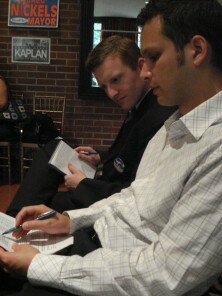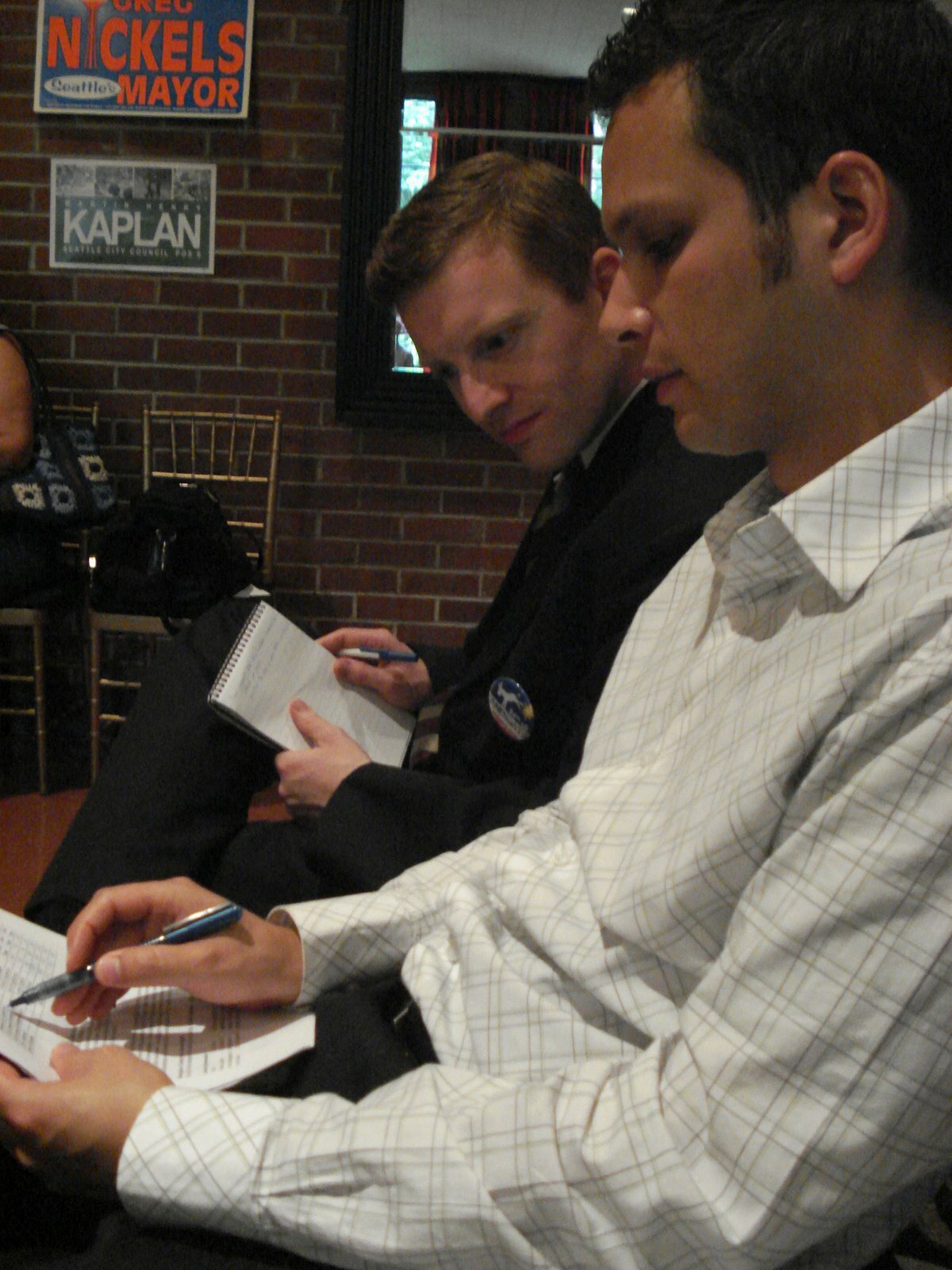
With the deadline for a declaration of candidacy approaching on May 17, Brian Carver, “a 33-year-old Kindle product director at Amazon.com,” has joined Kshama Sawant in the race to oust Richard Conlin, reports The Stranger‘s Cienna Madrid. Conlin, who holds a Master’s in political science, was first elected to the Council in 1997, and has since then worked to legalize miniature goats and ban plastic bags at grocery stores.
More controversially, Conlin was embroiled in a dispute regarding his overreach when as council president he signed the Supplemental Draft Environmental Impact Statement on the deep-bore tunnel planned to replace the Viaduct, to help the city meet a deadline that Mayor McGinn seemed comfortable letting slide. That action gave rise to a failed recall effort. Nor did he endear himself to Sonics fans by declaring himself against the use of public funds for the proposed SoDo arena, or to service employees by being the only no-vote on sick leave legislation.
Carver, who has a Master’s degree in both business administration and engineering (with a manufacturing and operations management focus), previously ran for a seat on the Council in 2009, an effort registered mainly by people paid to notice such things. Now, on certain issues, he seems to have learned the power of coattails. “Transit is now just getting into the planning phase, and that’s mostly thanks to McGinn,” he told Madrid. “We must do better. We can’t fix every pothole before we start planning the transit infrastructure we need to get us into the 21st century.” He’s also pro-microhousing.
What’s different in ’13, as opposed to ’09, is the highly visible way Amazon is reshaping Seattle’s South Lake Union area, both in terms of building infrastructure and by virtue of the physical presence of thousands of Amazon employees. That’s a feathering of McGinn’s cap, and whoever else wants to get on board. As an Amazon employee himself, Carver may have an instant voting bloc, who themselves are immersed in lean management theory and practice and find the Council’s small-town infighting and status-seeking bemusing, if not aggravating.

At least at this juncture, Carver can pretend to be the electable Conlin opponent. Sawant made a strong showing as a protest candidate, running against Frank Chopp last year, but “fiery” and “incendiary” (two adjectives you find attached to Sawant’s name) are also code words that in Seattle mean “keep it up, and people will slowly back away from you.” An economics teacher at Seattle Central Community College and a member of the American Federation of Teachers Local 1789, as her site’s bio states, Sawant sounds like the mythical one-handed economist people have dreamed of, with a single, strident take:
“The city is dominated by the Democratic Party elite, who are in cahoots with the Downtown Seattle Association and the Greater Seattle Chamber of Commerce, along with the very powerful construction industries and Paul Allen’s Vulcan, which is a shark devouring real estate while we are having continued problems with homelessness and skyrocketing rent,” she apparently told The Stranger without drawing a breath. You can’t argue with her analysis, per se, but for many people, Paul Allen or Bill Gates or Jeff Bezos are our sharks, like from Finding Nemo.
Then there are the elements you may very well want to argue. In her press release announcing her run, Sawant said she’d push for a “Millionaire Tax to fund public education and a green jobs program, expanding public transit, a $15/hour minimum wage in the city, and scrapping the MAP test in the city’s public schools.” Besides which, she’d tackle the “systematic police brutality, racial profiling, and repression of social movements by the Seattle Police Department.” And coal trains.
Perhaps it doesn’t play very well in the general media to trot out grounded rationales for positions like a $15 per hour minimum wage (not $14, not $16, but $15) or rent control (with its tendency to become a traded currency among social circles), but despite her PhD in economics and through her own rhetoric Sawant has allowed herself to be cast primarily as an Occupy-style firebrand, someone who accepts a level of marginalization in the hopes of at least changing the conversation.
